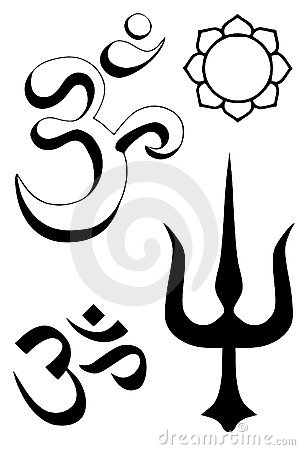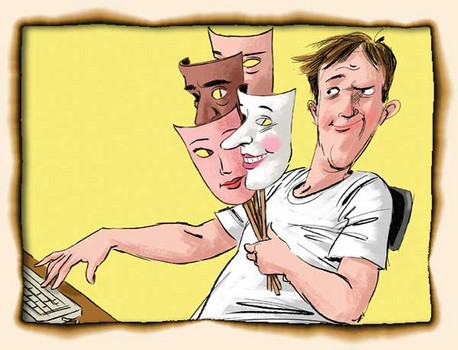
A widespread belief throughout history has been that our minds are separate from, and superior to, our bodies. The mind has been viewed as the exalted seat of reason, identity, and spiritual purity, while the body, with its untamed emotions and crude urges, has typically been seen as the lower, “animal” part of us. But what neuroscience and cognitive science researchers have been finding, in discoveries that are truly revolutionary, is that this supposed division between mind and body is almost completely illusory. The mind, it turns out, can’t really be separated from the body at all, because the body seems to play an integral role in almost everything the mind does. While the brain can be anatomically localized to the head region – where we typically perceive our “self,” or sense of self, to be – almost everything the mind does, including planning, making decisions, and thinking in abstract ways, appears to critically, inescapably depend upon and involve the body. Without the body, there is apparently no functional mind.
It makes intuitive sense to many of us that we feel with our bodies, because we’ve all experienced desires and emotions that seem to arise from the body: erotic longings and hunger pangs, or hollow, cavernous “drops” in the stomach that signal intense emotional pain, often because a relationship that’s important to us has become threatened. What is more difficult for us to see or realize – because the dynamics contradict our inherited beliefs and are also typically unconscious – is that the body also allows us to make good decisions and even to think.
The brain has long been known to contain a series of topographic body “maps” that can both respond to and activate every inch of the body. When we decide on a course of action – whether to go on a trip, spend time with someone, or take a certain job, for example – we simulate in our bodies what that experience, that course of action may feel like, and those bodily feelings are a critical element in our determination of the best course of action to take. When we watch someone else doing something – swimming, picking up a newspaper, eating, having sex – we also simulate with the body maps in our brains what it might feel like for us to be doing those same things.
The same basic body maps and brain circuits that allowed sensation and movement in our earliest animal ancestors also apparently began to be used during human evolution for abstract thought. Thinking is, in effect, an action, and studies have shown that thinking uses circuits in a part of our brains (the motor cortex) that is also responsible for generating body movements.
It seems that we can never race away in our thoughts without taking the body with us – because our bodies are, in effect, always part of our thoughts. But we can certainly become, to varying degrees, “disconnected” from, or consciously unaware of, our bodies.
Such disconnection, or “dissociation,” from the body, occurs most commonly and dramatically following serious traumas, such as childhood sexual abuse. A very common unconscious response to this kind of trauma is for the child to make his or her body very rigid. This freezing or deadening of the body seems to happen in part to dull the severe emotional pain that the child will inevitably feel. But while deadening or disconnecting from the body may lessen emotional pain temporarily, it will typically have severe consequences if it becomes a habitual pattern. When the child begins to experience any strong emotion, the emotion will often be suppressed out of the fear that other painful, seemingly unmanageable, feelings from the past will also be triggered. The child becomes, in effect, afraid of the body and the painful feelings that the body may transmit and intensify.
More subtle traumas, such as dysfunctional relationships with parents or hurtful interactions with peers, can also create similar disconnections. And, in this culture, unfortunately, nearly all of us have experienced traumas that can lead us to disconnect from our bodies.
When the body is disconnected, some sort of blowback is almost inevitable. The body wants to play and move freely – it wants to live and have fun. When the body doesn’t have enough fun, when it isn’t fully alive and vital, it will probably compensate at certain times by having a little too much fun. One way or another, unfortunate decisions will be made – we’ll eat a few too many desserts, get rambunctiously drunk, or have sex with the wrong person. Important relationships may suffer, as will self-esteem.
Without full awareness of our bodies, we’re never really sure what we feel. And since our feelings are designed to tell us what is most important to us – what really means something to us – when we disconnect from our bodies and our feelings, we can lose a sense of meaning in our lives. We can find ourselves focusing on things that, in truth, hold little real value for us.
The healthy brain-body system seems to operate when it’s “connected,” and also about the many dysfunctional, destructive consequences of brain-body disconnection – such as addictions, eating disorders, and a lack of vitality in general.
The truth is that the vast majority of us, to varying degrees, have become badly disconnected: from ourselves, from what we truly value, and from the broader world around us. However, there are powerfull ways that we can re-connect – to our bodies and ourselves as we truly are, and then through this healthy connection to ourselves, to other people and to the full experience of being alive.



